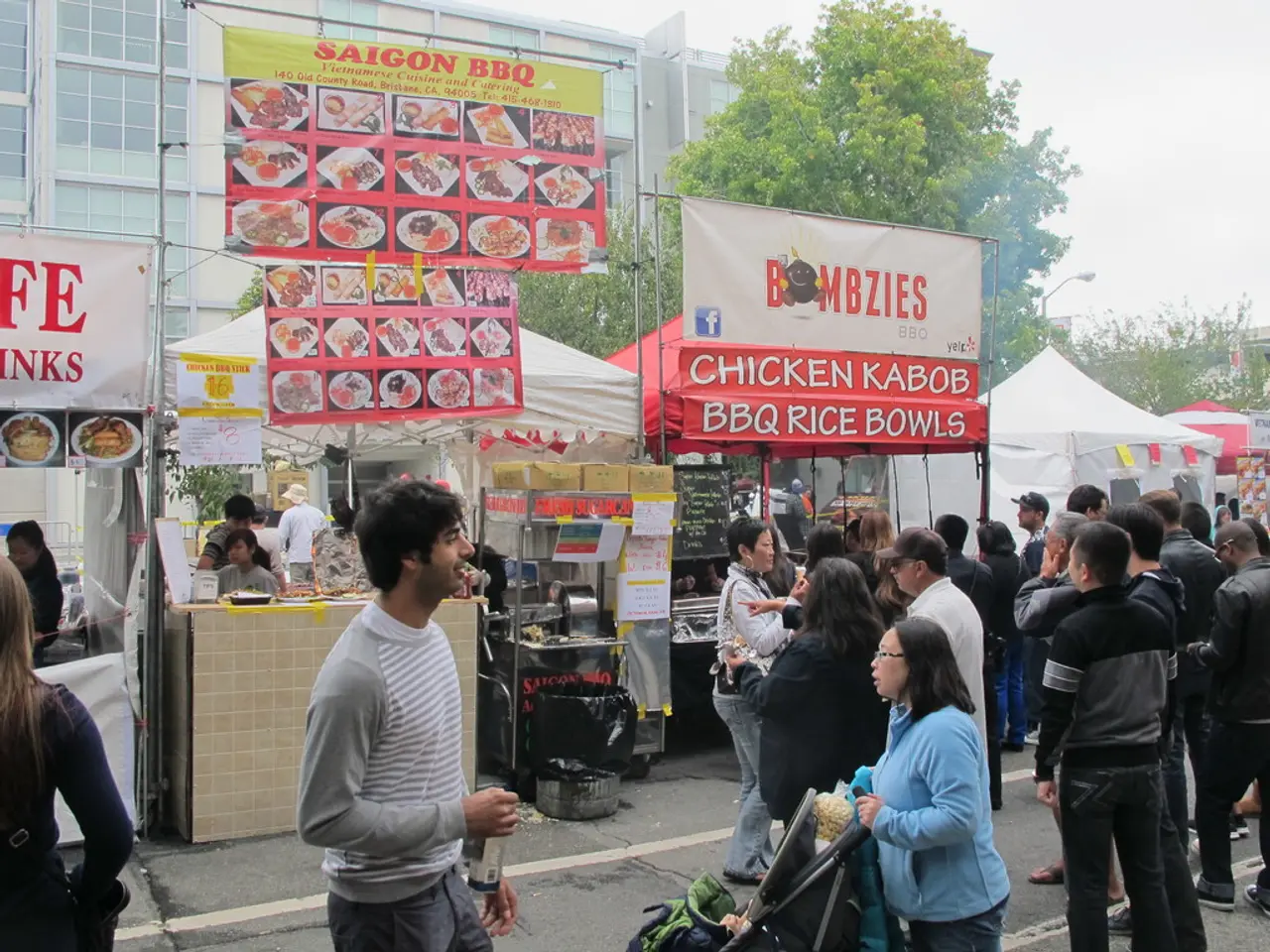City of Bremen's Decade of Accessibility: Digital Resource Hub for Disabled Individuals
In the heart of Germany, the city of Bremen is making significant strides in promoting accessibility for people with disabilities. On October 28th, 2021, the city celebrated the tenth anniversary of its Barrier-Free City Guide, a comprehensive resource designed to improve the quality of life for residents and visitors with disabilities.
The guide, which has evolved since its first printed edition in 1986 and transitioned to digital format in 2014, now lists over 800 facilities in Bremen. These facilities offer detailed information on accessibility and special offers, ensuring that people with disabilities can navigate the city with ease.
The celebration took place at the WFBeta event venue of the WFB Bremen Economic Development Corporation, where key figures in Bremen's accessibility initiatives gathered to express their congratulations. Henning Sklorz (Head of Department Bremen Online at the WFB Bremen Economic Development Corporation), Senator Kristina Vogt, Arne Frankenstein, Wilhelm Winkelmeier, and Christoph Theiling were among those present.
Senator Vogt, who has been financing and supporting the Bremen Barrier-Free Portal and the Barrier-Free City Guide for several years, emphasised the importance of the guide, stating that knowing barrier-free accessible places allows for safer and more independent movement around the city. She further added that the guide not only makes Bremen more inclusive but also shows that the city thinks innovatively and takes care of the needs of all its citizens and visitors.
Arne Frankenstein, the Bremen State Commissioner for the Disabled, echoed these sentiments, emphasising that barrier-free access is a prerequisite for the equal participation of all people. He highlighted the guide's role in answering questions such as the accessibility of leisure facilities, attractions, and offices, the location of barrier-free toilets, and the availability of special offers for visually and hearing-impaired persons.
The Barrier-Free City Guide for Bremen is a testament to the city's commitment to accessibility. It reflects a strong commitment to accessibility in various ways, from legislation to digital services, from transport to tourism. Bremen adheres to the Bremen Equal Opportunities for Persons with Disabilities Act (Bremisches Behindertengleichstellungsgesetz, BremBGG) as well as the EU Directive 2016/2102 and the Web Content Accessibility Guidelines (WCAG) 2.1.
The city's digital portal, bremen.de, has been developed with accessibility as a priority, ensuring that online information and services are usable for people with disabilities. Physical accessibility and transport are also priorities, with Bremen providing barrier-free access to major urban sites and transportation hubs.
Bremen's historic districts and attractions, including the Schnoor Quarter, the Bremen Town Musicians statue, the City Hall, and museums like Universum Bremen, are part of the city’s inclusive tourism approach. While specific barriers are not detailed in the search results, Bremen aims to balance preservation with accessibility improvements, making cultural heritage more inclusive over time.
This comprehensive approach—from legislation to digital services, from transport to tourism—contributes to Bremen’s reputation as a city committed to barrier-free living. The ongoing refinement of accessibility elements fosters greater independence and participation for people with disabilities, enhancing their ability to navigate and enjoy the city’s offerings effectively.
For more information, the Bremen Barrier-Free Portal can be accessed at www.barrierefrei.bremen.de. The city's commitment to accessibility continues, ensuring that Bremen remains a city where everyone can live, work, and enjoy life without barriers.
The Barrier-Free City Guide, a digital resource in Bremen, provides detailed information about over 800 facilities, promoting health-and-wellness and mental-health by enabling people with disabilities to navigate the city easily. By emphasizing the importance of the guide, Senator Vogt highlighted its role in improving safety and independence for its citizens and visitors, contributing to a more inclusive city that values science and innovative thinking.




